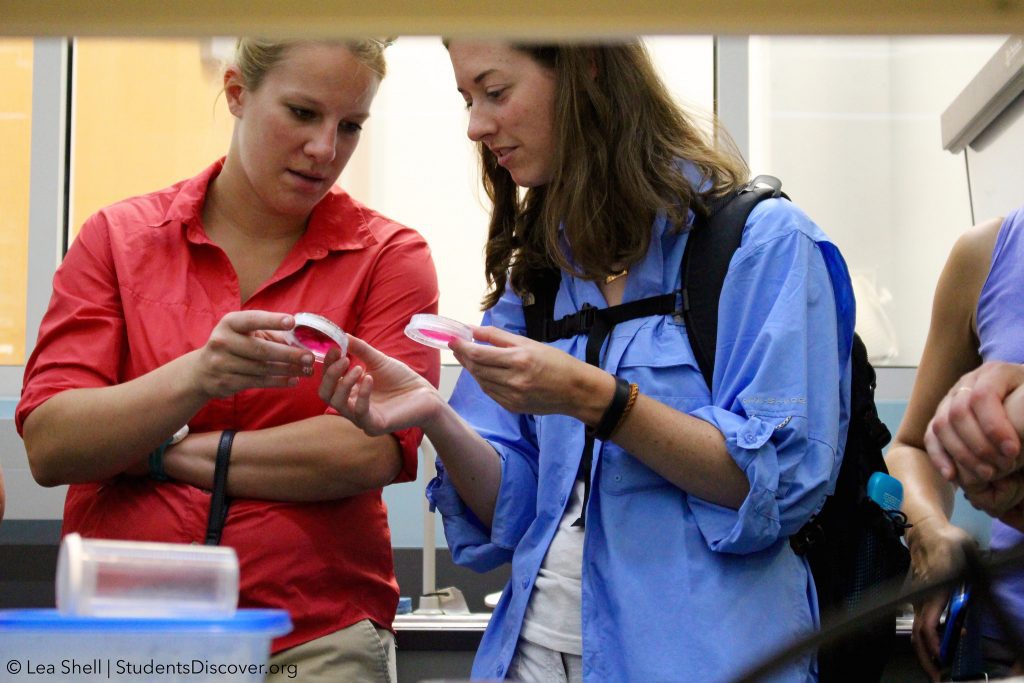 I have come to notice a common theme for students when they are asked what they picture when they think of a scientist. They imagine a man in a white lab coat working with microscopes and test tubes.
I have come to notice a common theme for students when they are asked what they picture when they think of a scientist. They imagine a man in a white lab coat working with microscopes and test tubes.
This is a problem!
Being a scientist does not mean you have to be stuck in a lab, or only be a man. Women can be and are scientists. Rosalind Franklin, under-recognized in my humble opinion, helped pave the way for what we know about the structure of DNA. Yet moving past the stereotype of who a scientist is and what he does is tricky.
This is why citizen science is such an amazing tool to prove that anyone can be a scientist and contribute to real scientific research. As part of the Students Discover project, students will come to see that many scientists wear comfortable clothes and sensible shoes to explore the outside world and get down and dirty while collecting samples and data to further their research. Yes, time is spent in the lab, but not always.
Student Discover: Ants —the amazing team of Kenan Fellows and scientists at the N.C. Museum of Natural Sciences of which I am part of — are developing lessons to make research on ants accessible to anyone. The project’s success will come from developing lessons that are easy to replicate.
As an intern at the Museum this summer, I learned so much from my mentors, Drs. De Anna Beasley and Magda Sorger. Teachers have such a passion for learning and this experience allowed us to again be in a learning environment where we were the students. We are now in the process of sharing what we have learned not only with students but with other educators and our community.
We are developing lessons that utilize CODAP (Common Online Data Analysis Platform) to make the Ant Picnic data accessible to anyone. We are also creating a lesson plan to bring the Invisible Pathogens citizen science project into the classroom to try and assess the health of ants in different environments.
As educators, we understand the struggles of trying to use a lesson that you did not create in your own classroom. The success of the project will come from having lessons that are easy for any teacher to follow. To help facilitate that we have created tutorial videos and enrichment activities for each lesson.

Success will also stem from student engagement and interest. These lessons are designed to spark new interests in science and hopefully feed their natural curiosity. Ants are not normally an animal of interest to people. We are about to change that!
Maggie McKinley, 2016-17 Kenan Fellow, teaches science at Burgaw Middle School in Pender County. Her fellowship, Students Discover: Ants is supported by the National Science Foundation.